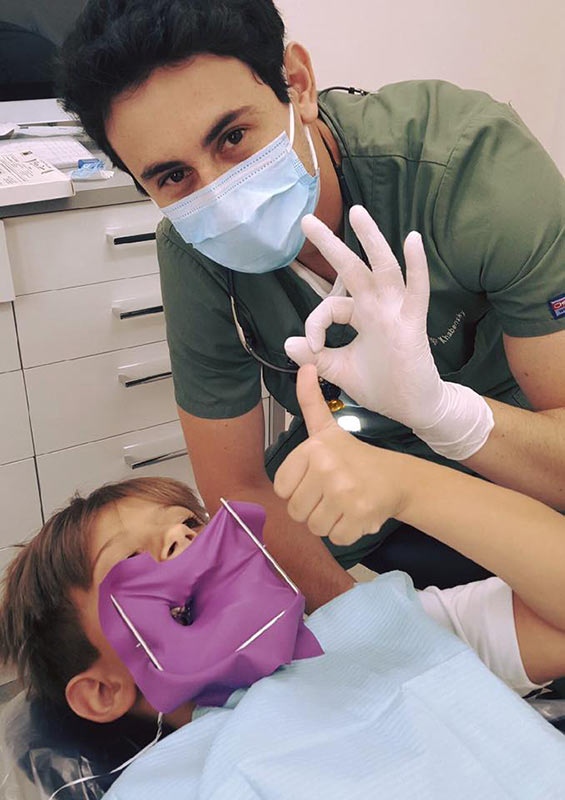Discover the Top Dentist Eugene Oregon Homeowners Trust for Exceptional Treatment
Discover the Top Dentist Eugene Oregon Homeowners Trust for Exceptional Treatment
Blog Article
An Overview to Common Oral Problems That Need a Dentist's Care
Toothaches, for example, can be symptomatic of severe concerns such as cavities, cracked teeth, or abscesses, each calling for details treatments like dental fillings or origin canals. Affected wisdom teeth and jaw disorders can introduce substantial pain and difficulties.
Toothaches
Toothaches are a typical dental condition that can vary from moderate discomfort to severe discomfort, commonly suggesting an underlying issue that calls for expert interest. This discomfort can come from a selection of resources, including dental cavities, broken or fractured teeth, and oral abscesses. Each of these conditions positions considerable threats if left unattended, potentially resulting in more extreme issues.
Tooth decays, additionally called caries, are caused by the buildup of plaque that deteriorates tooth enamel, bring about openings or pits in the impacted teeth (dentists eugene). Cracked or fractured teeth, on the other hand, might arise from trauma, grinding, or biting into tough things. These structural damages can expose the delicate internal layers of the tooth, triggering sharp pain and enhancing the risk of infection. Abscesses are agonizing infections at the root of a tooth or in between a tooth and the gum, usually arising from severe degeneration or neglected cavities.
Effective treatment of toothaches entails dealing with the source. This may consist of dental fillings for tooth cavities, crowns for cracked teeth, or root canals and anti-biotics for abscesses. Early treatment by a dental expert can prevent additional degeneration and reduce discomfort, ensuring optimum oral health and wellness.
Gum Tissue Disease
Gum tissue disease, a common yet usually overlooked dental condition, materializes with swelling and infection of the gums and supporting tissues. If left neglected, gingivitis can proceed to periodontitis, a more severe form defined by the destruction of the supporting bone and connective tissue, inevitably leading to tooth loss.
The key reason for gum tissue disease is bacterial plaque, a sticky, colorless film that frequently forms on teeth. Poor dental health, cigarette smoking, genetic tendency, and specific medical problems, such as diabetic issues, can intensify the risk of developing gum illness. Routine dental exams are critical for early discovery and administration of this condition.
Treatment for gum disease varies from expert oral cleansing and scaling to even more advanced treatments like root planing and periodontal surgery, relying on the severity. Keeping great oral health methods, including cleaning two times daily, flossing, and using an antiseptic mouthwash, can dramatically decrease the risk of gum tissue illness and promote much healthier gum tissues.
Cavities
Dental caries, likewise called tooth decays, are an usual dental problem identified by the destruction of tooth enamel as a result of acid-producing bacteria in the mouth. These microorganisms prosper on sugars and starches from food and beverages, creating acids that gradually deteriorate the enamel, resulting in cavity development.
Early-stage cavities might disappoint signs and symptoms, but as they progress, they top article can trigger toothache, sensitivity to warm or chilly, noticeable openings or pits in the teeth, and staining. If left unattended, cavities can permeate deeper layers of the tooth, potentially resulting in extreme discomfort, infection, and even tooth loss.
Preventing tooth cavities entails a combination of great dental health practices and dietary behaviors. Regular brushing with fluoride tooth paste, flossing, and regular dental examinations are important. Dentists might additionally recommend additional precautionary measures, such as fluoride therapies and oral sealants, to secure teeth from decay.
Minor dental caries can be addressed with oral fillings, which restore the tooth's structure. Much more sophisticated cases may need crowns or also root canal therapy if the decay has reached the tooth's pulp.

Impacted Wisdom Teeth
Affected wisdom teeth are a widespread dental problem that takes place when the 3rd molars, commonly referred to as wisdom teeth, stop working to totally emerge or line up effectively within the mouth. This problem usually results from inadequate room in the jaw or an abnormal development angle of the teeth. Impacted wisdom teeth can cause a range of problems, consisting of damage, pain, and infection to surrounding teeth.
When knowledge teeth end up being influenced, they are frequently partially emerged or continue to be entirely below the periodontal line. This partial eruption can produce a path for microorganisms to get in the gum tissues, bring about infections that show up as swelling, discomfort, and also high temperature. In addition, affected knowledge teeth can apply stress on bordering teeth, possibly creating crowding or changing.
A comprehensive dental examination, usually including X-rays, is vital for identifying affected wisdom teeth. Treatment typically involves medical removal, performed by an oral doctor. The treatment intends to ease pain and avoid further complications, such as cysts or damage to bordering bone structures. Post-operative treatment is critical to make certain correct healing and minimize the risk of infection. Regular oral examinations are suggested to monitor the problem and preserve oral wellness.
Jaw Conditions
Jaw disorders, collectively called temporomandibular joint (TMJ) disorders, include a variety of Visit Website problems that impact the jaw joint and bordering muscle mass. These disorders can show up through signs and symptoms such as discomfort or inflammation in the jaw, problem eating, a standing out or clicking audio when opening or shutting the mouth, and also chronic frustrations. TMJ disorders can emerge from different variables, including joint inflammation, jaw my latest blog post injury, or regular actions like teeth grinding or jaw clenching.
Diagnosis of TMJ disorders usually includes a thorough evaluation by a dental expert, consisting of a physical assessment of the jaw, oral X-rays, and sometimes advanced imaging strategies like MRI or CT checks to analyze the joint's condition. Non-invasive approaches such as physical therapy, dental splints, and drugs aimed at lowering swelling and pain are typically first-line therapies.
Very early intervention by a dental specialist is crucial to stop the progression of TMJ problems and to preserve general oral health. Patients experiencing relentless jaw discomfort or dysfunction must look for prompt evaluation and therapy.
Verdict
Toothaches frequently show underlying problems such as dental caries, broken teeth, or abscesses, calling for prompt treatment. Influenced wisdom teeth and jaw conditions additionally need specialist attention to ease discomfort and stop more problems.
Dental dental caries, also recognized as decays, are caused by the buildup of plaque that wears down tooth enamel, leading to openings or pits in the affected teeth. Abscesses are agonizing infections at the origin of a tooth or between a tooth and the gum tissue, usually resulting from extreme decay or unattended cavities.

Furthermore, impacted wisdom teeth can apply pressure on bordering teeth, potentially creating crowding or shifting.
Report this page